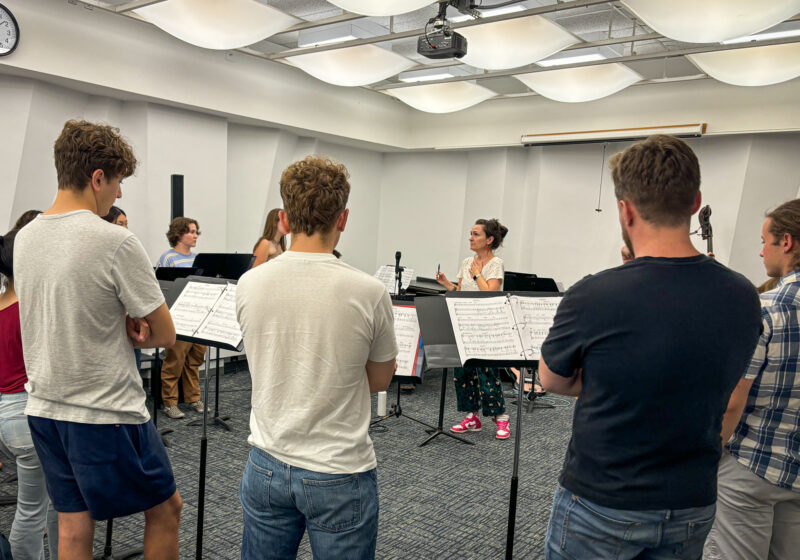For almost a month now, it has been physically impossible to enter or exit Rush Rhees library without being olfactorily assaulted. Sometimes the smell even wafts upstairs to the Periodical Reading Room. I’m sure you know what I’m referring to – yes, those beastly machines of grease and glutton that now line UR’s signature tunnels.
As we are all aware, they radiate heat and scent like aroused skunks, so much that it can be nauseating to walk by them. They must also suck up an enormous amount of energy, given their permanent heat emission, and their energy-draining accouterments – the refrigerated Coke machine and the light-up sign begging us to buy.
Commenting on the nutritional value of the products, a friend of mine asked a service man, “How about a machine that sells fruit and vegetables?” His comment was received with a confused gaze. And vegetarians, beware – the beef “flavoring” is derived straight from meat.
While these are all annoying features of the machines, there are other disheartening aspects of the fry machines that are not quite so obvious. It is so easy to obtain those fries – insert credit card, remove credit card, stare at wall for 45 seconds, enjoy greasy treat, but it is just as easy to forget about the broader implications that these machines embody.
To someone who is thinking “bigger picture,” the smell is possibly the best thing going for those machines. To me, they symbolize a consumer culture that is all too ready to simply use and discard resources at our own whim, and they give form to a system in which corporations simply dole out a bit of cash to influence the nature of our education.
Let me elaborate a bit.
In American society, we use resources at an astounding rate. If the entire world were to consume the resources of an average American, it would require at least four earths to support the human population. The McDonald’s fry machine is a perfect example of this wastefulness. The purchaser inserts money. Fries mysteriously appear. Fries are hot thanks to input of non-renewable energy. Purchaser proceeds to eat fries, then throw away non-recyclable container. Container is removed by service worker and continues to landfill by way of heavy steel truck burning lots of oil. Container remains in landfill for very long time. All this, just for a small semi-satisfying snack.
In terms of the amount of influence corporations have on education, I highly recommend that you read “Fast Food Nation,” which, to the dismay of some sensationalists, is not just horror stories about mice in the burgers. More and more frequently, public schools accept money from corporations in return for giving them leeway to advertise in the schools. Sometimes schools accept teaching material created by non-educational corporations. A study in the late ’90s by the Consumer’s Union found that 80 percent of corporate-sponsored teaching material was biased, presenting information that supported the corporation’s products or its ideologies. A high school student in Georgia was even suspended for wearing a Pepsi T-shirt on “Coke-In-Education Day.”
What message does the university send by accepting money to install these machines coated in corporate logos and so intruding into our educational experience? I find it to be an active vote of confidence for a system in which resources are continually wasted and corporations can now essentially purchase control of a student’s education.
Just a little food for thought as you peruse this issue of the CT, perhaps while sipping on a Coke in Wilson Common’s Pepsi-Co. Plaza.
Stewart can be reached at astewart@campustimes.org.



